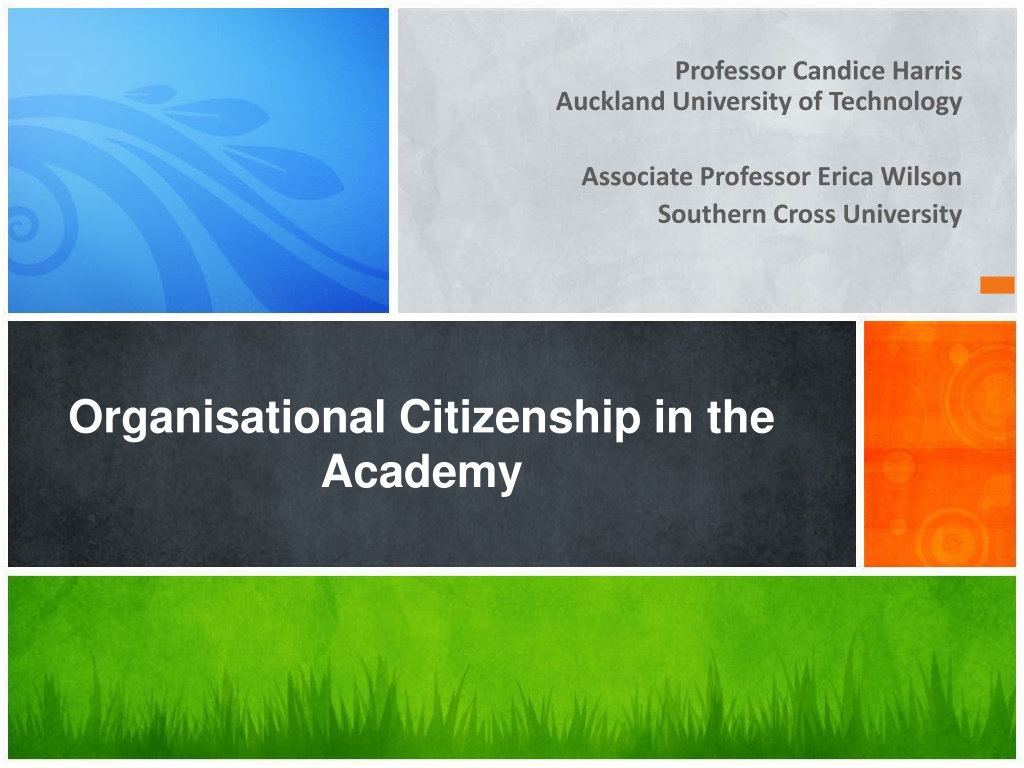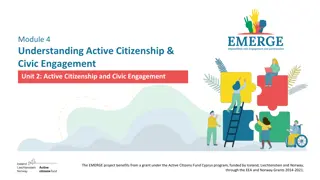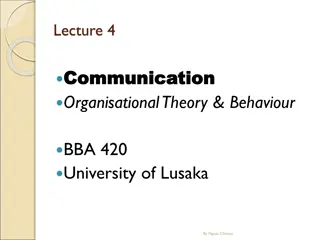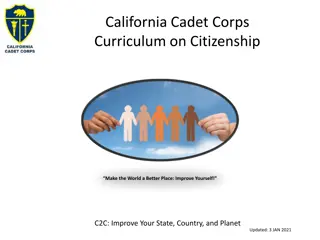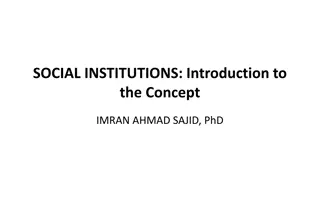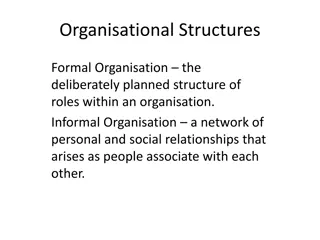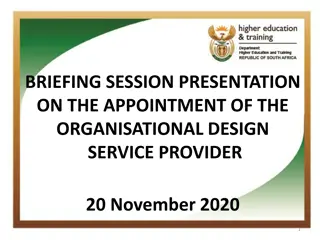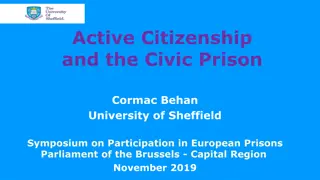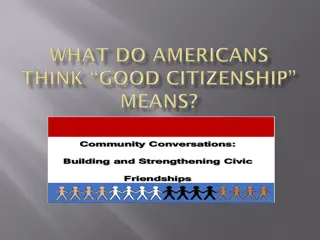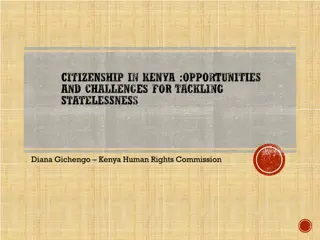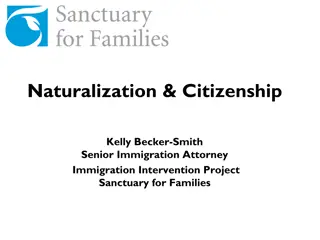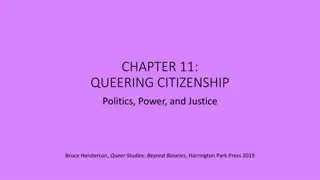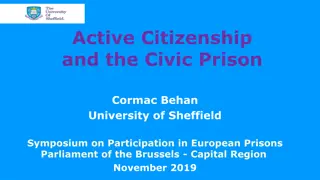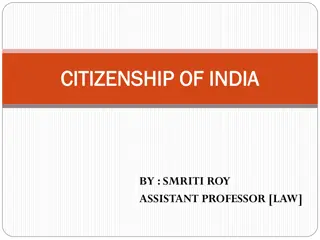Exploring Organisational Citizenship in Academic Institutions
Understanding the concept of Organisational Citizenship and its significance in academic settings. Delve into the behaviors that go beyond regular job tasks to support colleagues and the work environment. Explore examples of Organisational Citizenship in academia and its impact on academic careers. Reflect on the role of institutions in society and the evolving landscape of tertiary education.
- Organisational Citizenship
- Academic Institutions
- Workplace Behaviors
- Academic Careers
- Tertiary Education
Download Presentation

Please find below an Image/Link to download the presentation.
The content on the website is provided AS IS for your information and personal use only. It may not be sold, licensed, or shared on other websites without obtaining consent from the author. Download presentation by click this link. If you encounter any issues during the download, it is possible that the publisher has removed the file from their server.
E N D
Presentation Transcript
Professor Candice Harris Auckland University of Technology Associate Professor Erica Wilson Southern Cross University Organisational Citizenship in the Academy
What is Organisational Citizenship? A set of positive workplace behaviours that are distinct from the employee s work tasks and that support organization members (your co-workers or stakeholders) and/or the work environment. Organizational citizenship behaviour is individual voluntary behaviour which is discretionary; not directly or explicitly recognized by the formal reward system of the organization. (Organ et al, 2005).
Organisational Citizenship Has an important place within classic theories and conceptualizations of work performance (see Viswesvaran & Ones, 2000). It also serves as a key criterion variable for several organizational variables such as job attitudes and justice perceptions (Hoffman, Blair, Meriac, & Woehr, 2007).
Organisational Citizenship in the Academy - the good soldier syndrome? - the glue that keeps universities together? - service to disciplines to move beyond organisational borders - demonstrating leadership? - collecting CV activity?
Organisational Citizenship Examples CANDICE, eg: CAUTHE SIGs CAUTHE Exec NZWIL Steering Group Discipline Pods AUT Cr che Committee AUT Ignite leadership Mentoring ERICA, eg: Women s mentoring & promotion CAUTHE Exec & SIGs HDR students/mentoring Conference organisation AACSB/AoL Reconciliation Action Plan
Aspects of an academic career (traditional) Research and publishing Teaching Service
Appreciate context (and how it changes) Role of institutions in civil society Tertiary landscape Knowledge production and impact ROI of qualifications Evolution of disciplines Citizenship Learning and influence Work and society Digital disruption
Citizenship Advice Know what you have to offer to teams, committees, departments, the wider university and beyond Understand your motivations in the citizenship space find new ones if you need to Establish a strong narrative about your citizenship endeavours and collect evidence for what you deliver
Citizenship Advice (contd) Show how your efforts here fit with your academic identity (mine = gender & advancement) Be prepared to put your hand up and make connections outside of your silo Try not to: Over-reach (e.g. joining a whole lot of committees the year you want promotion) Over-sell (claim to mentor a whole of people when really you are being collegial) Fake it by presenteeism (what do you contribute?)
The early career phase: Citizenship considerations Early career is an important time, where you learn about the various parts of academic work you do, and in terms of how it provides you with: Immense pride Flow and enjoyment Mere satisfaction Tests of your resilience Early career can vary by age, life stage, country, discipline, etc
The mid career phase: Citizenship considerations Mid career so, where does mid career start and stop? a time of consolidation; finding your groove ; clear(er) on strengths and weaknesses are; more questioning, reflection, critique. -learning to be selective (more directive) with service and OCB *how to say no , but also still yes -knowing your why -more focused, less patience! -job crafting (recrafting; recreating roles; a new professional identity?
Key Questions (in groups) 1) How and why did you become an academic? 2) What organisational citizenship behaviours might you have done, or witnessed around you? How did it make you feel? 3) Where would you like to focus your service/OCB activities and how can you build a narrative about this? 4) How might organisational citizenship behaviours be valued in my School/Department/Institution? (formally or informally)
